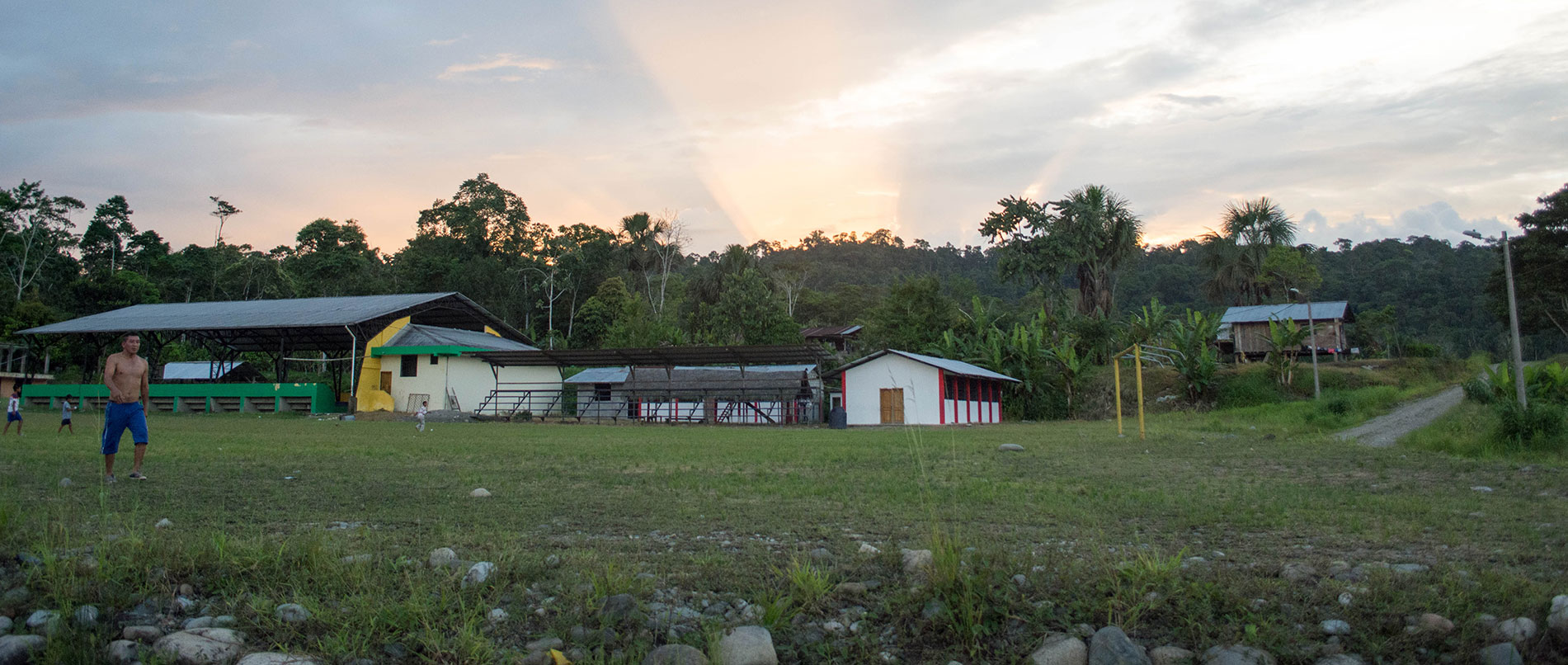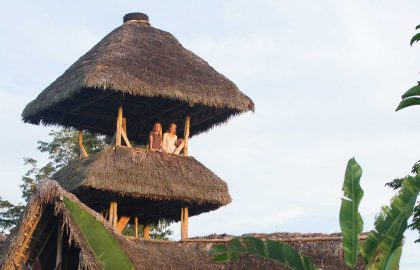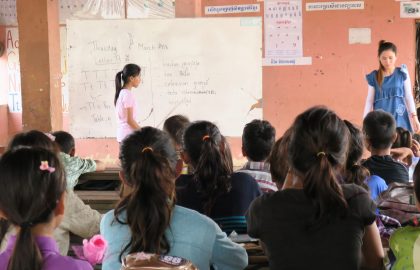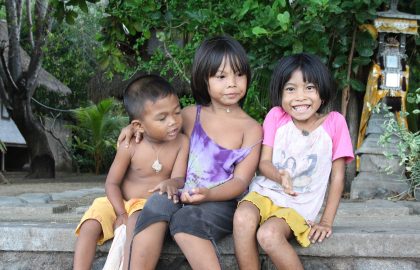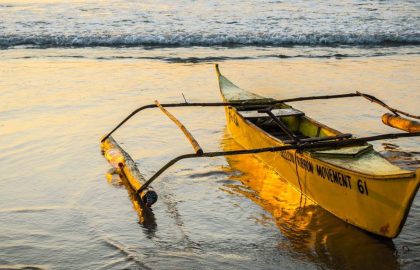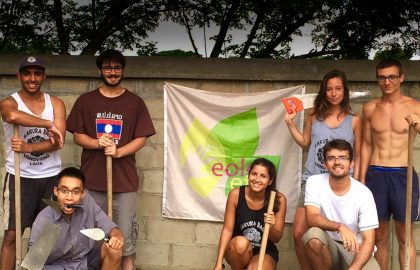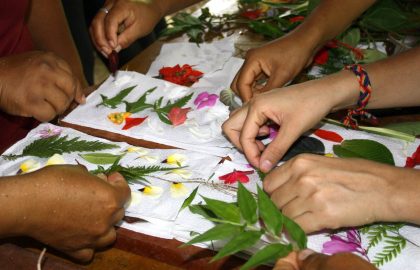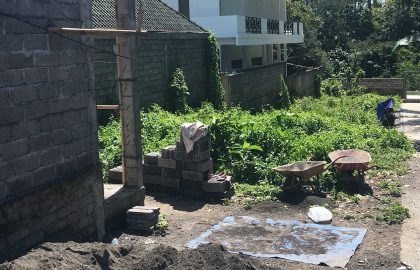Description
Location: Tena, Ecuador
Duration: Minimum 4 weeks (flexible for min. 2 weeks depending on intern’s qualifications), Maximum 1 year
Start Dates: Project is ongoing, and you can join at any time, depending upon availability
Cost: $550 for the 1st week + $400 for each additional week (2 month minimum is recommended) – see ‘Costs’ tab for further details
Benefits:
- Work with farmers, foresters, park rangers, and/or environmental engineers experienced in forest conservation, agroforestry, agronomy, participatory community development, social entrepreneurship, and sustainable farming
- Learn about national and local efforts to mitigate climate change and support on-going projects to diversity local farms, implement environmental education programs, and make the region more resilient to climate change
- Learn about Amazonian cultures and their connection to ethnobotany, agroforestry, and plant medicine
- Accompany locals into chakras (agroforestry farms) and plant, weed, and harvest
- Opportunity to support communities with eco-tourism projects, go on hikes into protected forests, and participate in reforestation projects
- Research & dissertation support available with partner organizations and universities, if requested
- Keywords: field research, sustainable development, climate change, international development agriculture, forest conservation, community tourism, cacao industry, seed banks, indigenous rights, economic development, sustainable development, indigenous traditions.
Introduction
The Amazon rainforest is one of the most biodiverse ecosystems in the world and has thousands of species of trees, plants, insects and animals. Also, the rainforest is a key consumer of carbon – one of the greenhouse gases – and about one-fifth of the freshwater that runs off of Earth’s surface is carried by the Amazon River. For thousands of years, Amazonian indigenous peoples have lived in the forest and dedicated themselves to agroforestry-style farming to feed their families and generate income. Today, the rainforest is a major producer of oil, lumber, and minerals [e.g. gold, copper], many of which are extracted in unsustainable ways that damage the environment.
This a unique opportunity for interns to learn about the intersection of ancestral knowledge and climate change mitigation and how they can come together to conserve the forest, preserve cultures, generate income for local communities, and combat the effects of climate change.
Daily Life
Internships begin with an orientation in the city of Tena. After, interns spend the first few weeks getting to know their host family and getting introduced to their placements. Depending on the needs of the placement, potential internship activities include:
- Contribute to research on how to diversify and add value to chakras (agroforestry farms), including marketing research for up-and-coming exports such as cacao, guayusa leaf tea, and vanilla
- Accompany host family members when they go to their chakras, and plant, weed, and harvest
- Collect environmental data about species of flora and fauna in chakras and protected forests
- Assist with the creation of plant inventories and seed banks to share with communities
- Interview locals about their ancestral farming knowledge with the goal of identifying practices that help crops withstand environmental changes
- Hike into protected forests with park rangers to assist with biological monitoring
- Attend community meetings and workshops related to farming, tourism, and development
- Design and implement workshops related to climate change, environmental education, or another topic of interest to share with community members or in schools
- Participate in half-day or day-long reforestation projects
- Support communities with their eco-tourism projects
- Organize English lessons with locals who are eager to advance their language skills and receive Spanish and Kichwa lessons from them as well
An average day for a conservation intern looks like:
***NOTE: Schedules can differ based on the intern’s placement and projects interns collaborate on. The following sample schedule is based off of past interns’ experiences.***
- Wake up and have breakfast with host family (***If you are with a very traditional indigenous family, you can wake up with them at 4 or 5am and share in the ritual of drinking guayusa tea as a family. ALSO, morning is when most families work on making artisan goods.***)
- Head to the chakra (agroforestry farm), go to the office, and/or go into the forest for field work
- Lunch with host family (***OR: When interns are in the field they can buy lunch or bring a packed lunch***)
- Finish up daily tasks, field work, independent research
- Return home around 5/6pm for dinner with the family (***We encourage interns to spend as many evenings and weekends as possible with their host families to make the most of their immersions, learn about the culture, and practice their Spanish***)
- Other activities to get involved in after work and on the weekends: sports, clubs, teaching English, meeting up with other interns, going on weekend trips to nearby tourist destinations, swimming in rivers, rafting, hikes to waterfalls and swimming holes, chocolate-making
Interns need to bring extra spending money for their transportation, meals not eaten with the family, and activities and travel outside of the program. The cost of living and transportation costs are explained in more detail in the intern manual provided to incoming participants to help them calculate how much extra money they should bring.
***NOTE: Specific projects change throughout the year depending on the needs of our partner organizations. The projects interns work on during their internship are based on the organization’s immediate needs and workflow.***
Travel & Accom.
The best airport to fly into is Mariscal Sucre International Airport (UIO) in Quito, Ecuador’s capital. Interns need to arrive to Quito no later than the night before their orientation begins. Quito is only 4 hours from Tena, the main city in the Napo Province. On the morning of orientation, a staff member schedules a taxi to pick interns up and bring them to Tena for training; they just have to pay the driver upon arrival.
Interns stay in Tena during orientation, and the cost of the accommodation is provided. The rest of the program is spent living with a local host family. This is an amazing opportunity to immerse in the local community, learn about the culture, and practice Spanish. Host families provide 3 meals per day, bedding, and a place to do laundry.
Requirements
Interns are expected to finance their own travel costs (international and while in Ecuador).
Other requirements include:
- Minimum 4 weeks commitment, recommended 8-12 weeks (flexibility for a minimum of 2 weeks however this could affect the price).
- Academic and/or professional experience in the fields of environmental studies, climate studies, forestry, conservation and forest management, biology, or a related field
- Full travel & medical insurance
- Necessary vaccinations
- Necessary visa costs
Costs
$550 USD for the 1st week, $400 USD* for each week thereafter.
* Currency conversions are approximate. Use xe.com for up to date currency conversion rates
** All payments incur a 5% bank transfer fee
*** Places are confirmed with a 1 week deposit.
What’s Included:
- Accommodation during orientation
- Accommodation and 3 meals a day with a host family. Includes a private room, bathroom, all bedding, and place to do laundry
- Guided pre-departure preparation
- In-country orientation that addresses risk management, culture shock, cross-cultural adaptation skills, history/culture/politics of Ecuador and the Amazon, team-building, goal-setting, and more
- 1:1 check-ins every 2 weeks
- 24/7 emergency support
- Network of doctors, therapists, Spanish tutors in-country
- Access to network of experts and information databases for research support
- Exit interview and end-of-program reflection
- Alumni group and future references
What’s not included:
- Costs of flights and visa
- Costs of vaccinations
- $15 per day for food during orientation training
- Personal transportation
- Any other activities outside of scheduled program activities (white water rafting, yoga, workshops, guided jungle hikes, etc.)
Full assistance will be provided in getting all these arranged if you choose our Premium Support.
Premium Support Upgrade
We understand there’s a great deal to plan and organise for your trip. When booking a Placement, many of our participants choose to purchase our Premium Support Upgrade to benefit from the expertise, knowledge and experience of our Project Coordinators. We can provide the personal advice you need to ensure your trip is organised with excellence and planned with efficiency; ensuring the very best experience possible. Read more about how we can help you.
Tena, Napo, Ecuador
Note: Map coordinates are approximate

